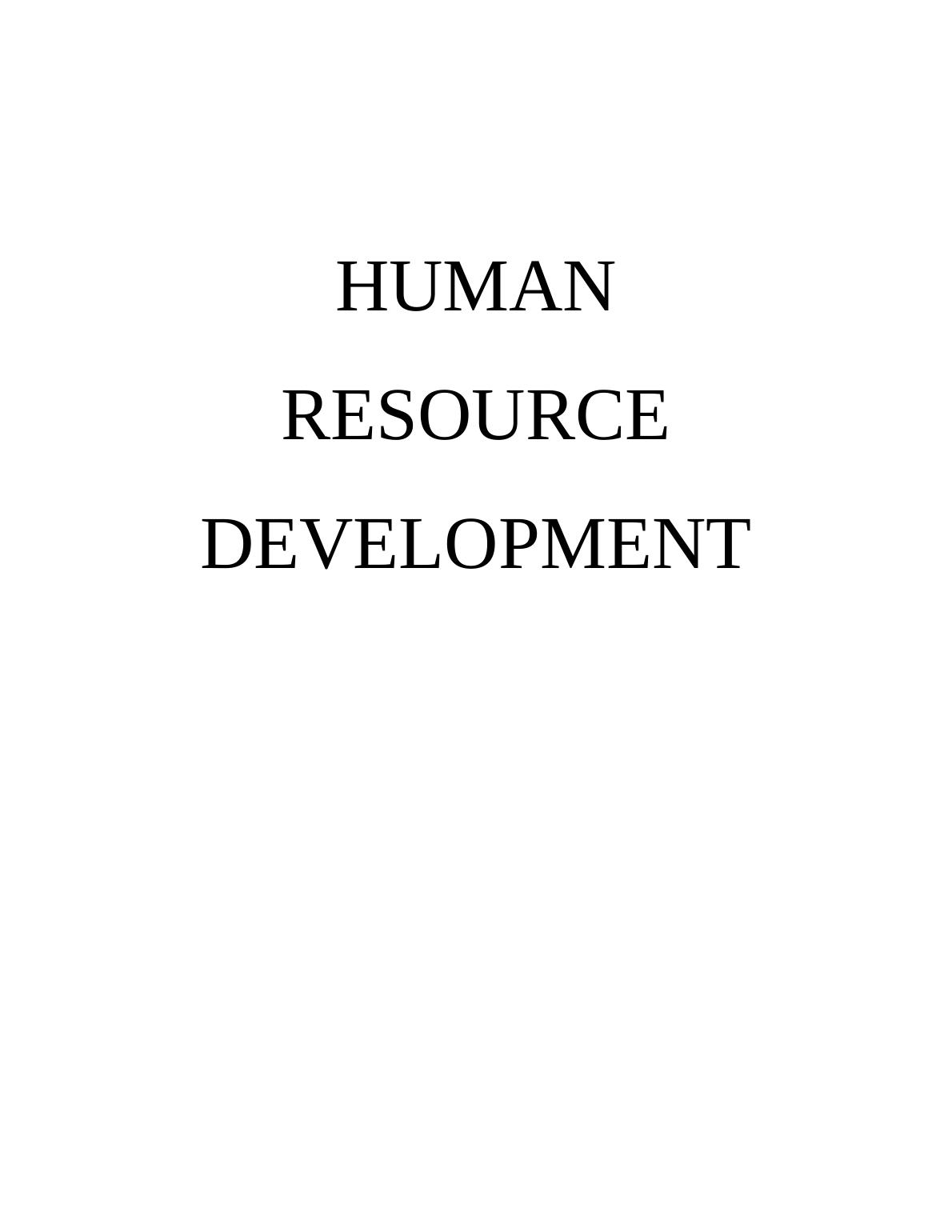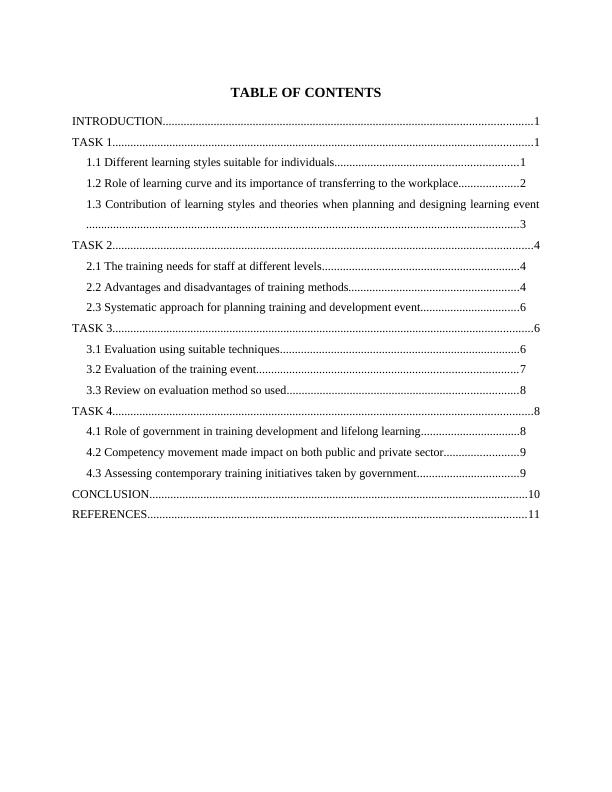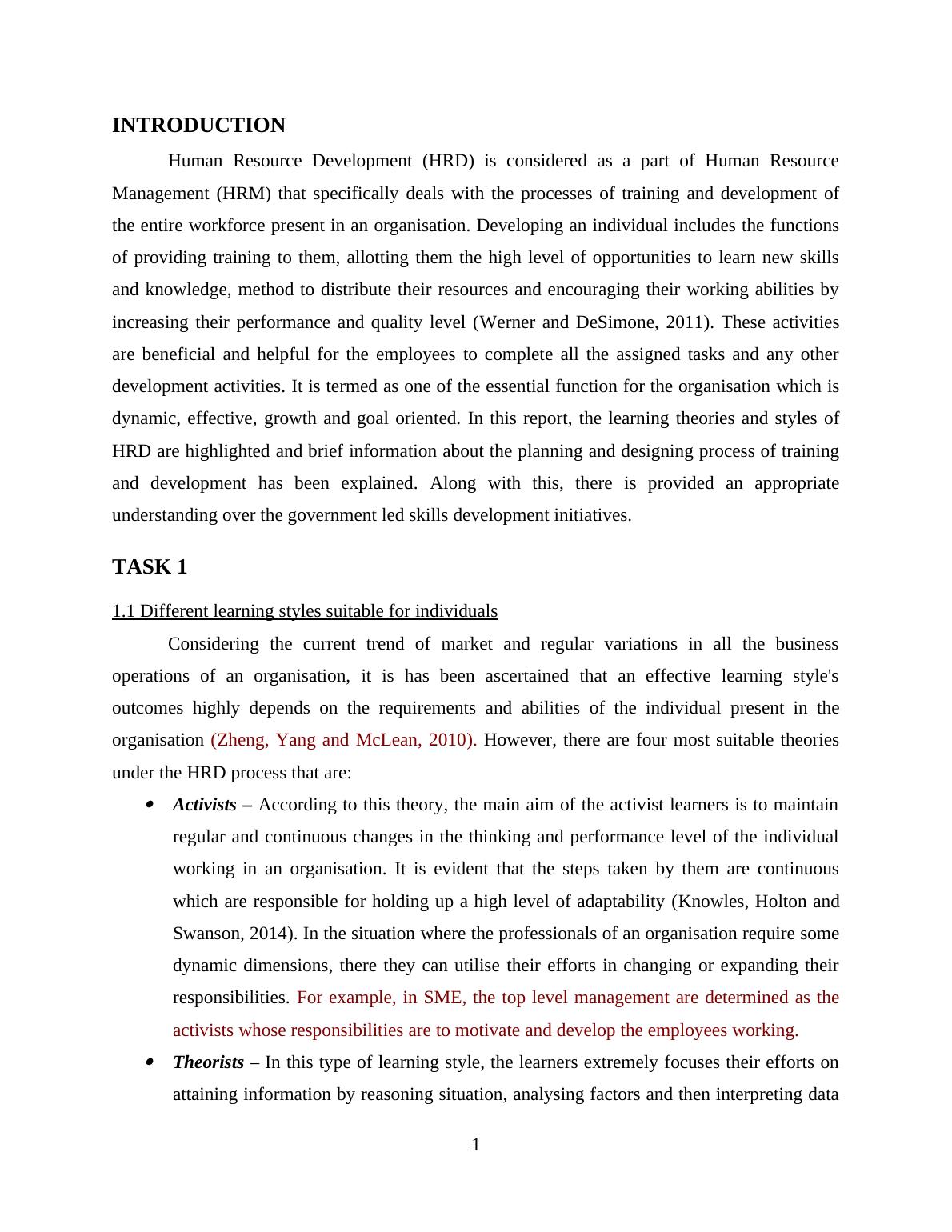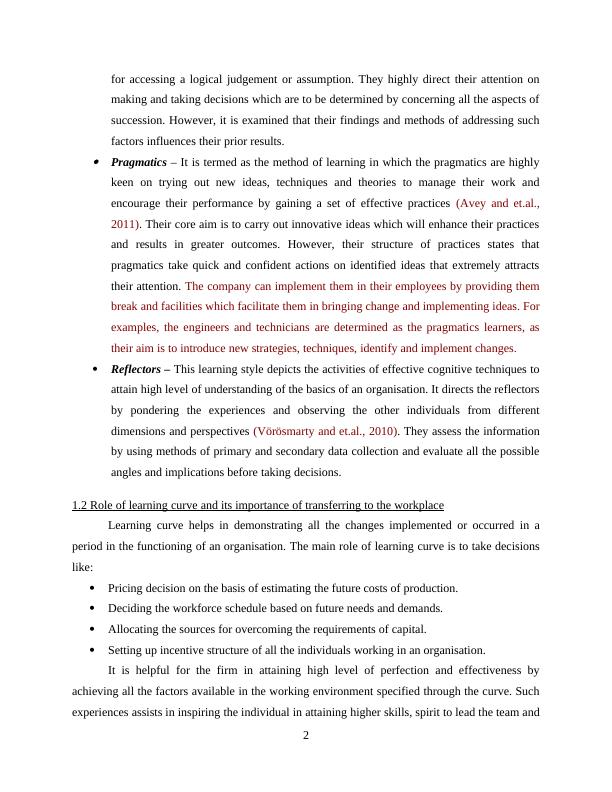Different Learning Theories Of Human Resource Development
15 Pages4785 Words298 Views
Added on 2020-01-28
Different Learning Theories Of Human Resource Development
Added on 2020-01-28
ShareRelated Documents
HUMAN RESOURCEDEVELOPMENT

TABLE OF CONTENTSINTRODUCTION...........................................................................................................................1TASK 1............................................................................................................................................11.1 Different learning styles suitable for individuals.............................................................11.2 Role of learning curve and its importance of transferring to the workplace....................21.3 Contribution of learning styles and theories when planning and designing learning event................................................................................................................................................3TASK 2............................................................................................................................................42.1 The training needs for staff at different levels..................................................................42.2 Advantages and disadvantages of training methods.........................................................42.3 Systematic approach for planning training and development event.................................6TASK 3............................................................................................................................................63.1 Evaluation using suitable techniques................................................................................63.2 Evaluation of the training event.......................................................................................73.3 Review on evaluation method so used.............................................................................8TASK 4............................................................................................................................................84.1 Role of government in training development and lifelong learning.................................84.2 Competency movement made impact on both public and private sector.........................94.3 Assessing contemporary training initiatives taken by government..................................9CONCLUSION..............................................................................................................................10REFERENCES..............................................................................................................................11

INTRODUCTIONHuman Resource Development (HRD) is considered as a part of Human ResourceManagement (HRM) that specifically deals with the processes of training and development ofthe entire workforce present in an organisation. Developing an individual includes the functionsof providing training to them, allotting them the high level of opportunities to learn new skillsand knowledge, method to distribute their resources and encouraging their working abilities byincreasing their performance and quality level (Werner and DeSimone, 2011). These activitiesare beneficial and helpful for the employees to complete all the assigned tasks and any otherdevelopment activities. It is termed as one of the essential function for the organisation which isdynamic, effective, growth and goal oriented. In this report, the learning theories and styles ofHRD are highlighted and brief information about the planning and designing process of trainingand development has been explained. Along with this, there is provided an appropriateunderstanding over the government led skills development initiatives. TASK 11.1 Different learning styles suitable for individualsConsidering the current trend of market and regular variations in all the businessoperations of an organisation, it is has been ascertained that an effective learning style'soutcomes highly depends on the requirements and abilities of the individual present in theorganisation (Zheng, Yang and McLean, 2010). However, there are four most suitable theoriesunder the HRD process that are:Activists – According to this theory, the main aim of the activist learners is to maintainregular and continuous changes in the thinking and performance level of the individualworking in an organisation. It is evident that the steps taken by them are continuouswhich are responsible for holding up a high level of adaptability (Knowles, Holton andSwanson, 2014). In the situation where the professionals of an organisation require somedynamic dimensions, there they can utilise their efforts in changing or expanding theirresponsibilities. For example, in SME, the top level management are determined as theactivists whose responsibilities are to motivate and develop the employees working. Theorists – In this type of learning style, the learners extremely focuses their efforts onattaining information by reasoning situation, analysing factors and then interpreting data1

for accessing a logical judgement or assumption. They highly direct their attention onmaking and taking decisions which are to be determined by concerning all the aspects ofsuccession. However, it is examined that their findings and methods of addressing suchfactors influences their prior results. Pragmatics – It is termed as the method of learning in which the pragmatics are highlykeen on trying out new ideas, techniques and theories to manage their work andencourage their performance by gaining a set of effective practices (Avey and et.al.,2011). Their core aim is to carry out innovative ideas which will enhance their practicesand results in greater outcomes. However, their structure of practices states thatpragmatics take quick and confident actions on identified ideas that extremely attractstheir attention. The company can implement them in their employees by providing thembreak and facilities which facilitate them in bringing change and implementing ideas. Forexamples, the engineers and technicians are determined as the pragmatics learners, astheir aim is to introduce new strategies, techniques, identify and implement changes.Reflectors – This learning style depicts the activities of effective cognitive techniques toattain high level of understanding of the basics of an organisation. It directs the reflectorsby pondering the experiences and observing the other individuals from differentdimensions and perspectives (Vörösmarty and et.al., 2010). They assess the informationby using methods of primary and secondary data collection and evaluate all the possibleangles and implications before taking decisions.1.2 Role of learning curve and its importance of transferring to the workplaceLearning curve helps in demonstrating all the changes implemented or occurred in aperiod in the functioning of an organisation. The main role of learning curve is to take decisionslike:Pricing decision on the basis of estimating the future costs of production.Deciding the workforce schedule based on future needs and demands.Allocating the sources for overcoming the requirements of capital.Setting up incentive structure of all the individuals working in an organisation.It is helpful for the firm in attaining high level of perfection and effectiveness byachieving all the factors available in the working environment specified through the curve. Suchexperiences assists in inspiring the individual in attaining higher skills, spirit to lead the team and2

End of preview
Want to access all the pages? Upload your documents or become a member.
Related Documents
Human Resource Development- HR Assignmentlg...
|13
|4175
|263
( HRD) Human Resource Development Assignmentlg...
|19
|5702
|105
Human Resource Development in Sun Court Ltd : Assignmentlg...
|17
|4985
|52
Human Resource Department in UK PDFlg...
|16
|4372
|93
Human Resource Development - Learning Styleslg...
|12
|3689
|187
Report on Human Resources Development and Traininglg...
|10
|3030
|104
